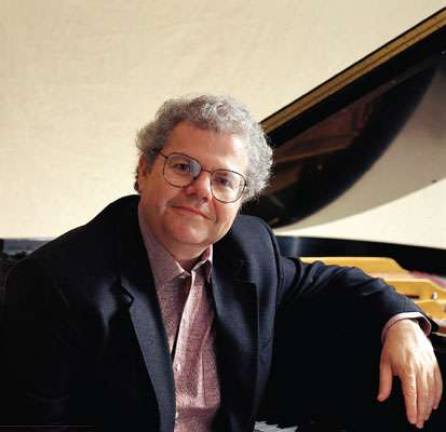A Wonderful Mozart Piano Concerto at the Philharmonic

I once heard Emanuel Ax, the pianist, give a great performance. Google has recalled the specifics: It was in August 2005 at the Mostly Mozart Festival. Ax played Mozart's Concerto No. 22 in E flat, K. 482. I have now heard Ax give another great performance. It was of the same concerto. This second performance was on a Wednesday night in the same hall: Avery Fisher. The conductor and orchestra were different, however. They were Alan Gilbert and the New York Philharmonic. Ax's phrasing was exemplary. He breathed along with the composer. He was both smooth and articulate. He was sensitive without being mousy. What rubato he used was intelligent. He fudged a trill or two, particularly at their resolution, but this was of little importance. Crucially, he was not afraid to play simply. "'Tis the gift to be simple." And you may remember a Rubinstein quip: "Mozart is too easy for children and too hard for adults." For the second movement, Andante, Ax chose a perfect tempo. Tempos in these "slow" movements of Mozart's are hard to get right. He sang this movement with an inevitable and natural feeling. The Rondo was jaunty and stylish. It was humorous in spots without being hammy. The cadenza that Ax has composed for this movement is fitting and clever; I thought I heard horn calls. Above all, Ax played the Rondo, and all of the concerto, with pleasure. It is a privilege to play Mozart. I believe Ax knows this. As the audience applauded, the man behind me said to his wife-loudly and twice-"Good ol' Manny Ax." He was more than "good ol' Manny Ax" on this occasion: He was a great Mozartean. Gilbert and the orchestra did their roles ably. There was a botched entrance in the horns near the opening, which was unfortunate. Some of the exposition had a clock-punching feeling. But, on the whole, the orchestra was alert, correct and compact. The beginning of the Andante was positively beautiful. The main work on this program was one of the main works of Mozart's life, and of music at large: the "Great" Mass in C minor. The orchestra was again alert, correct and compact (and so were the New York Choral Artists). Gilbert was never less than competent. He was completely assured and thoroughly prepared. In my judgment, however, this performance was barren of spirituality. It was also, I'm afraid, a bore. But I must say it was nice to hear the Mass performed with some richness, beauty and blood. In recent years, I have heard nothing but "period" performances, particularly at the Salzburg Festival. They are thin gruel, with some straw sticking out. They also feature mindlessly fast tempos. At the Philharmonic, it was a relief to hear "Laudamus te" at a sane, musical pace. The evening's soprano was Jennifer Zetlan, who was starry when she was a student at Juilliard. In the Mass, she began a little uncertainly and had no low notes. But she soon gained her stride and was wonderful. The other singers were adequate, with the tenor, Paul Appleby, sounding like a Polenzani in the making. The bass in Mozart's Mass has even less work to do than the mezzo-soprano in Beethoven's Ninth. A famous mezzo once told me she had a piece of advice for other mezzos engaged for the Ninth: "Wear a pretty dress."